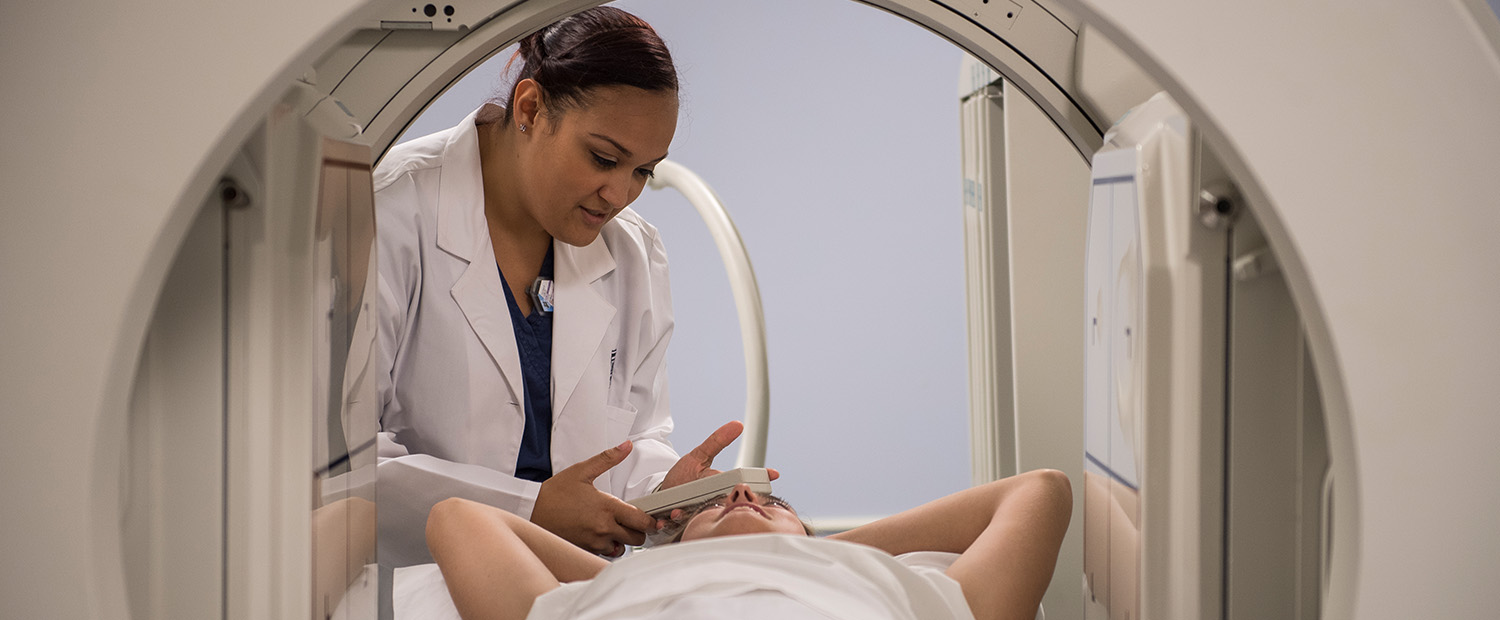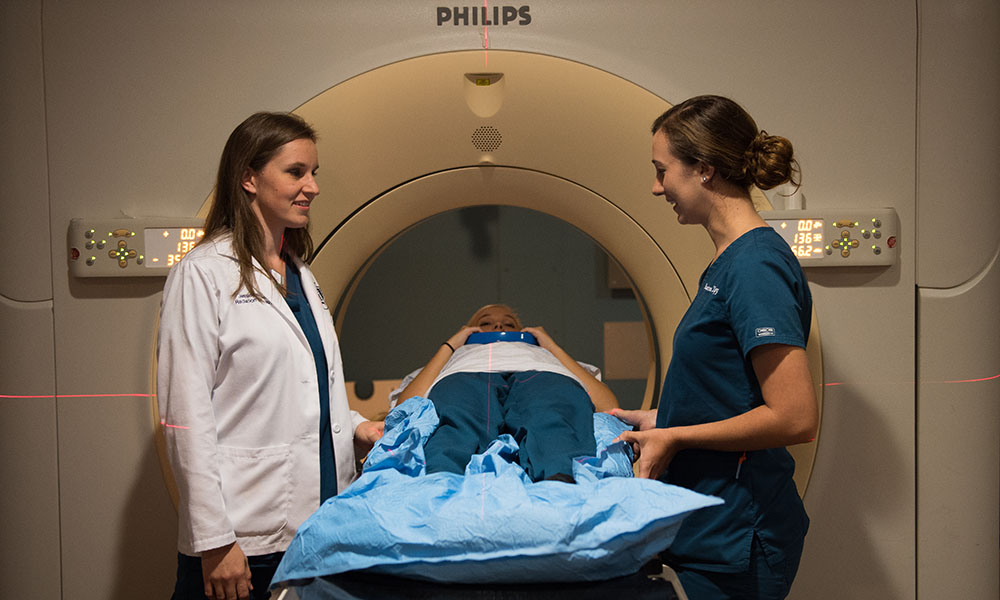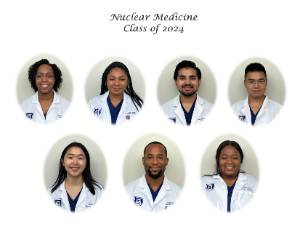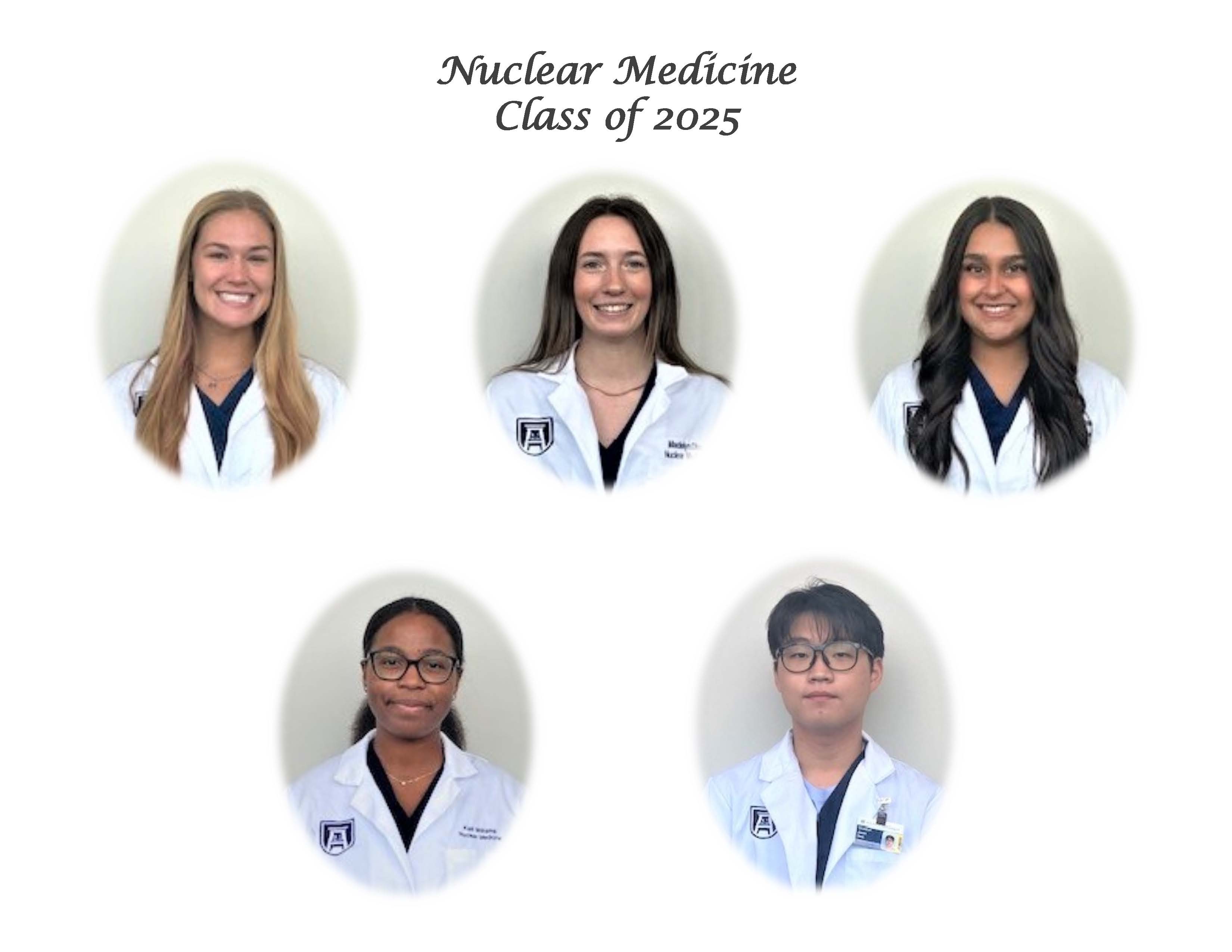
Nuclear Medicine Technology
Health Sciences Meets Computer Technology
Nuclear Medicine technologists work closely with imaging physicians to diagnose and treat disease. This field combines chemistry, physics, mathematics, computer technology and medicine. Nuclear medicine uniquely provides information about both the structure and function of virtually every major organ system within the body. This ability to characterize physiology separates nuclear medicine from other imaging modalities like X-ray and MRI.
NMT ranks #1 Best Online Nuclear Medicine Technologist Programs by EDUMED.
Nuclear medicine procedures are safe, involve little or no patient discomfort, and do not require anesthesia.
Contact Us
Nuclear Medicine Technology
Amy Yarshen, MBA, CNMT, Program Director
706-721-0895
Role of a Nuclear Medicine Technologist
Radiopharmaceuticals instrumentation: Preparing and administering radioactive chemical compounds
Computer processing and image enhancement
Analyzing biologic specimens in the laboratory
Providing images, data analysis, and patient information to the physician for diagnostic interpretation
During an imaging procedure, the technologist works directly with the patient to gain their confidence by obtaining pertinent history, describing the procedure, and answering any questions. Monitor their physical condition during the course of the procedure and note specific comments which may indicate the need for additional images or help the physician interpret results of the procedure.

Programs
We offer three pathways to a degree in nuclear medicine technology:
- A 2+2 baccalaureate program
- Baccalaureate degree completion program for credentialed NMTs
- Baccalaureate degree completion program for military-trained NMTs
Bright Future
Career Opportunities
Nuclear medicine will continue to be in the forefront of modern clinical medicine and technological development. Someone entering this field should be proficient in math and science, comfortable with computers and technology, self-motivated, empathic, emotionally stable, good with people, and have a strong work ethic. Many nuclear medicine technologists work in cardiology offices or clinics and in PET/CT imaging centers, where they work directly with patients in a non-invasive way to obtain valuable diagnostic information about the function and physiology of the body, and offer treatment with ionizing radiation.
Earning Potential: The median annual earnings of nuclear medicine technologists in 2020 was $79,590. The median hourly wage was $38.27/hour. (Source: U.S. Department of Labor)
Programmatic Accreditation
The nuclear medicine technology program at Augusta University is accredited by the Joint Review Committee on Educational Programs in Nuclear Medicine Technology (JRCNMT), 820 W. Danforth Rd., #B1 / Edmond, OK 73003; phone 405-285-0546; mail@jrcnmt.org; www.jrcnmt.org. For more information go to JRCNMT online directory of accredited programs and read the program's directory listing (https://www.jrcnmt.org/find-a-program/).
Graduate achievement data is an indicator of program effectiveness, demonstrating the extent to which a program achieves it goals. The current report on graduate achievement data, identified by program, is available on the JRCNMT website by clicking on the following link: Graduate Achievement Report
National Certification/Registration and State Licensure
The AU NMT program is accredited by the JRCNMT (jrcnmt.org) and therefore graduates
of the program are eligible to attempt the NMTCB (Nuclear Medicine Technology Certification
Board) national certification examination. Additionally, since AU is accredited by
the Southern Association of Colleges and Schools Commission on Colleges (SACSCOC),
the body for the accreditation of degree-granting higher education, graduates of the
program are also eligible to attempt the ARRT (American Registry of Radiologic Technologists)
national registry examination.
While attempting either or both of the national certification/registration examinations
is not a requirement of graduation, many employers require certification/registration
as a criteria for employment. Also, some states require licensure as a condition for
employment. The Department of Allied Health Professions has determined that the required
classes and educational activities of this academic program will qualify a graduate
of this program to take the national NMTCB and/or ARRT examination to obtain Certified
Nuclear Medicine Technologist, CNMT, and/or Registered Nuclear Medicine Technologist,
RT(N) credentials and subsequently satisfies the requirements of all states and territories
for the Certified Nuclear Medicine Technologist, CNMT, Registered Nuclear Medicine
Technologist, RT(N) or state licensure. Although the NMT program offers coursework
in CT, the program is not a CT program. Additional training will be required before
you are qualified to take either national certification exam in CT. CT certification
requires prior certification in nuclear medicine technology, radiography or radiation
therapy.
National Certification/Registration and State Licensure
The AU NMT program is accredited by the JRCNMT (jrcnmt.org) and therefore graduates of the program are eligible to attempt the NMTCB (Nuclear Medicine Technology Certification Board) national certification examination. Additionally, since AU is accredited by the Southern Association of Colleges and Schools Commission on Colleges (SACSCOC), the body for the accreditation of degree-granting higher education, graduates of the program are also eligible to attempt the ARRT (American Registry of Radiologic Technologists) national registry examination.
While attempting either or both of the national certification/registration examinations is not a requirement of graduation, many employers require certification/registration as a criteria for employment. Also, some states require licensure as a condition for employment. The Department of Allied Health Professions has determined that the required classes and educational activities of this academic program will qualify a graduate of this program to take the national NMTCB and/or ARRT examination to obtain Certified Nuclear Medicine Technologist, CNMT, and/or Registered Nuclear Medicine Technologist, RT(N) credentials and subsequently satisfies the requirements of all states and territories for the Certified Nuclear Medicine Technologist, CNMT, Registered Nuclear Medicine Technologist, RT(N) or state licensure.
Although the NMT program offers coursework in CT, the program is not a CT program. Additional training will be required before you are qualified to take either national certification exam in CT. CT certification requires prior certification in nuclear medicine technology, radiography or radiation therapy.
National Certification/Registry First Attempt Pass Rates 2021-2023
| First Attempt Pass Rates | 2021 | 2022 | 2023 | Cumulative |
| NMTCB | 8/9 (80%) | 9/11 (82%) | 11/11 (100%) | 28/31 (90%) |
| ARRT | 1/1 (100%) | 0/2 (0%) | 1/1 (100%) | 2/4 (50%) |
| Total | 9/10 (90%) | 9/13 (69%) | 12/12 (100%) | 30/35 (86%) |
Three Year Pass Rate - 86%
Class of 2024

Class of 2025
